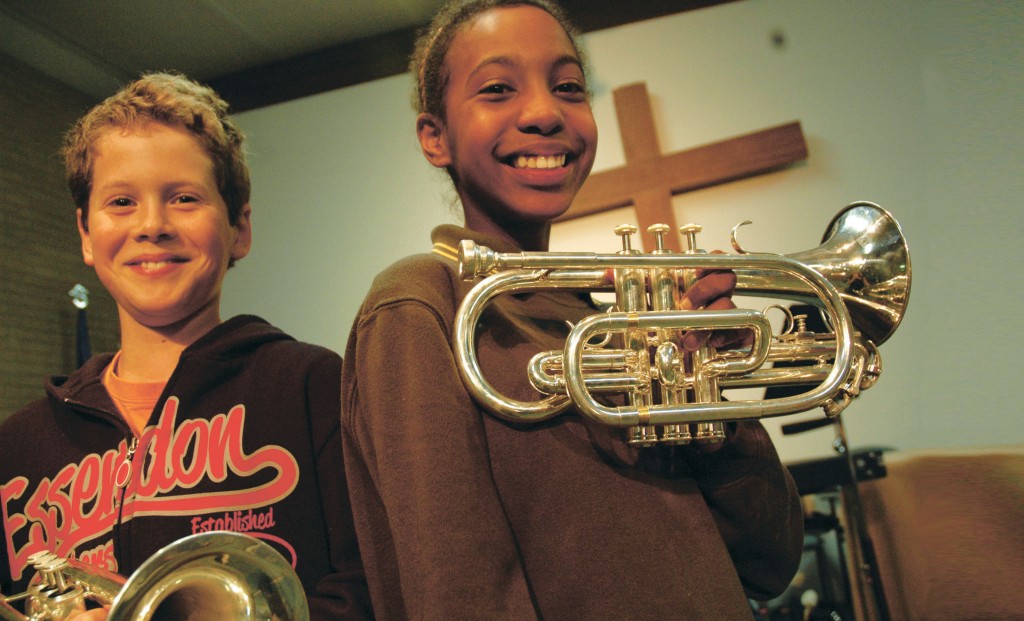The “Salvos” 150-year battle
Salvation Army Commissioner James Condon still gets emotional when he remembers the ordeal he endured at the Royal Commission into Institutional Responses to Child Sexual Abuse last year.
“I’d have to say that last year was the toughest year of my life,” the head of the church’s Australian Eastern Territory confesses during an interview to mark the Salvation Army’s 150th anniversary.
“Some mornings I would just sit in my prayer chair and I didn’t know how to pray.”
During several gruelling days in the witness box, Commissioner Condon clashed with counsel over why he didn’t report a known paedophile to the police, with his evidence mocked as “ludicrous” and “ridiculous”.
And in a live stream from the commission, he cried as he apologised for the abuse children suffered at Salvation Army homes in the 1960s and ‘70s.
“God was amazing because in my own strength I could never have got through that. I discovered what it means to be strengthened by the Lord.”
Picking up the pieces after a horror year that damaged the Salvation Army’s image even among its own people, Commissioner Condon enjoyed meeting Salvationists from the four corners of the world at a recent gathering in London to celebrate the 150th year since William and Catherine Booth began their ministry to the poor in London.
One lunch hour during the hearings, Commissioner Condon, was introduced to Mark Stiles, who had been raped and tortured by a Salvation Army major at Gill Memorial Home in Goulburn in 1971, when he was just 12.
Mr Stiles had given evidence of being dragged out of bed at 3am and being sexually abused. But Mr Stiles said he had been able to forgive his abuser after hearing a voice telling him Jesus was alive.
Commissioner Condon invited Mr Stiles to speak at the National Day of Prayer and Fasting in Canberra in February, where he and other church leaders washed his feet in an act of repentance.
Floyd Tidd, a Canadian who has led the Australian Southern Territory (Victoria, South Australia, Western Australia and the Northern Territory) for the past two years, has also been meeting survivors of abuse.
He is due to give evidence at Royal Commission hearings in Adelaide this month and says he will not defend what happened.
“My concern is really not the damage it may have done to the brand,” he tells Eternity.
“My greatest concern is what damage has been inflicted and what do we learn from that? And how do we help those who have experienced that which was not helpful to them, which caused them even more damage? How do we work together with them?”
Commissioner Tidd says he has started inviting supporters to hold him to account on the issue.
“Hold us accountable, look me in the eyes and ask me what I am doing to ensure we do everything possible to make sure it never happens to another young life.”
Both commissioners, who report directly to London head office rather than working together, are chasing ways for the Salvation Army to reinvent itself in 21st-century multicultural society.
While it is growing in Africa and parts of Asia, the church is declining in Britain and Europe and, in real terms, in Australia.
In the Eastern Territory (NSW, ACT and Queensland), regular church attendance has grown from 10,000 people a decade ago to 10,300 today, but this lags behind population growth.
“Engaging an emerging generation that has a heartbeat and passion for mission and yet takes a step back from hierarchical and institutional approaches – that’s the dance that we have to figure out how to do better,” says Commissioner Tidd.
Young soldiers have abandoned the traditional blue suit, white shirt and blue tie in favour of a branded black T-shirt with a large Red Shield logo on the chest.
Commissioner Condon, who is to retire next May, believes the uniform may act as a barrier to reaching new arrivals in multicultural Sydney.
“Many new arrivals come from countries where there is no Salvation Army and where a uniform might be feared,” he says.
In Sydney, where many young members have drifted to Hillsong, questions are also being asked about styles of worship.
In Melbourne, more flexible approaches to worship services are being tried including messy church, young adult services, and come-as-you-are church on Saturday night after a meal.
The initiatives are meant to redress criticism that the church’s social programmes have overshadowed its gospel ministry.
“In the late ‘80s, if you did research, the average Aussie would think of us as a charity,” admits Commissioner Condon.
“Increasingly, I think, people do see us as a church – but even people who see us as a church think it’s not for them because the image is of a church for the down-and-outs, whereas by and large the people are middle class.”
Commissioner Condon says longstanding social programmes are being gauged by how mission focused they are. One casualty of this new focus was the Salvo Care Line, which was axed in July.
Commissioner Condon’s touchstone project is Salvos Legal, a free legal service for people, particularly new arrivals, who can’t speak English and can’t afford a lawyer when they get into trouble.
He is proud to have realised a vision first articulated by founder William Booth to help poor people with their legal matters.
“To me that’s exciting because it’s contemporary and it’s relevant.”
Commissioner Tidd says the thriving churches are those that have taken local responsibility for community engagement.
“So in many ways I would think that the future of Salvation Army churches is in this moving out of our buildings again, back into the communities and engaging with the communities. That leads to the expression of you are a church but you are a social group and the two are not divorced.”
Commissioner Tidd’s reviews of services has prompted an increased presence of street teams going out into the
city late at night, most prominently in Melbourne but also other major cities.
“That’s the old become new for us in many ways,” he says.
Among the new initiatives, the second-level Doorways programme is helping people who are struggling financially to break the poverty cycle and to find a way out.

Tom Fernee, left, and Samira Amisse enjoy blowing their trumpets and French horns at the Salvation Army’s Barwon Corps HQ in Geelong, Victoria.
Polishing the brass cupboard
Brass instruments left over from the decline in brass-band playing in Salvation Army worship services are finding a new life on the lips of children.
Just Brass is a free programme that uses surplus instruments to give disadvantaged primary school children the training and opportunity to play in a community brass band.
It was launched in Geelong in Victoria in 2010, where about 90 children from various primary schools are bussed to the South Barwon Corps HQ each week to rehearse. The programme has grown and is now offered at various corps across the Southern and Eastern Territories.
“It’s a concept very much about kids in socially challenged areas where they can extend the whole idea of community and learning an instrument,” says spokesman Bruce Redman.
With the trend to include Hillsong-style songs, the brass band is no longer a core ingredient in worship services, although brass elements are often retained.
“In the past you had to be a signed-up member to play in a Salvation Army band; now it’s open to anyone who’s interested. So it becomes its own ministry in a sense because they are involved in a group where most people are Christians.”

A Salvos officer offers help and hope to a homeless woman and child.
Captain’s Log
A former Salvation Army captain has told Eternity of how the competing forces between the needs of the church and the community led him to leave the army.
“It is a massive fight between the two,” he says. “The church wanted your attention and the community wanted your attention. “We left because we really felt passionate about discipleship and church. But because of the pull-away and perception of the charity side of things it was hard to run the church.”
The former captain says trying to be a church in a community that sees you as a charity is tough.
“Everyone wants everything from you; they say ‘the Army should help.’ ‘They MUST help,’ and ‘that is what you are there for.’ [They say] ‘You are not allowed to say no’, and ‘we don’t want to have your Christianity.’”
The ex-captain says his concern is that the Army can’t be effective in the welfare field if the church is not healthy.
“We also need to look after the people in our churches and get them healthy or we won’t have the people to go out and do what we do,” he says.
“Local churches are struggling big time. They are shrinking, like most churches in Australia. I think one of the problems that we have is that people come in to the Salvation Army to do the good work and don’t actually have the foundation of Jesus.”
Email This Story
Why not send this to a friend?



